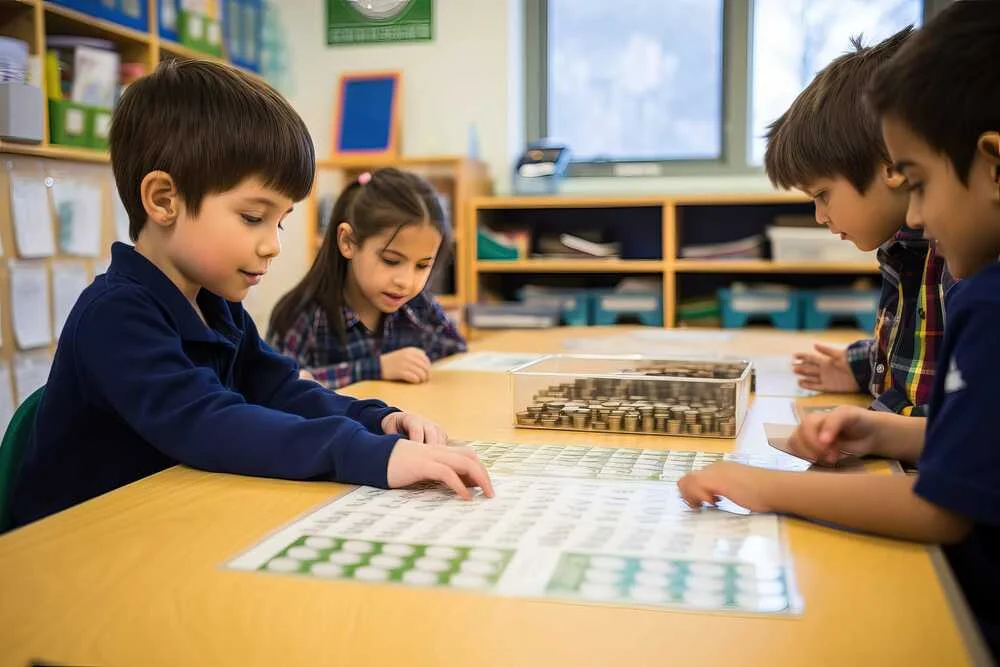When a child asks, “Why do birds fly but dogs don’t?” they’re doing more than satisfying curiosity. They’re demonstrating the early stages of critical thinking—analyzing information, making connections, and questioning the world around them. This natural inclination to wonder, compare, and reason forms the foundation of a skill that will serve them throughout their entire lives.
Critical thinking isn’t just about academic success, although it certainly plays a vital role in that area. It’s about developing the mental tools to approach problems thoughtfully, understand different perspectives, and make informed decisions. Understanding how children develop these essential reasoning skills requires looking at the intricate relationship between their growing minds, developing emotions, and expanding communication abilities.
The development of critical thinking in children isn’t a standalone process. It weaves together cognitive growth, emotional maturation, and communication skills in ways that reinforce and strengthen each other. When we understand how children develop and these connections, we can better support young learners as they build the thinking skills they’ll need for future challenges.
What Is Critical Thinking and Why Does It Matter?
Critical thinking involves the ability to analyze information objectively, evaluate different perspectives, and form reasoned judgments. For children, this means learning to question assumptions, consider evidence, and think through problems systematically rather than jumping to conclusions.
In childhood development, critical thinking serves as a bridge between acquiring knowledge and applying it in a meaningful way. When children develop strong critical thinking skills, they become better problem solvers, more effective communicators, and more confident decision-makers. These skills help them handle academic challenges, resolve conflicts with peers, and adapt to new situations with greater ease.
The importance of critical thinking extends far beyond the classroom. Children who learn to think critically are better equipped to resist peer pressure, evaluate information they encounter online, and make thoughtful choices about their behavior and relationships. These foundational skills become increasingly important as they grow and face more complex social and academic challenges.
Understanding How Children Develop Cognitive Skills
The foundation of critical thinking lies in understanding how children develop their basic mental processes and reasoning abilities.

The Basics of Cognitive Development in Children
Cognitive development in children refers to the growth of mental processes, including thinking, reasoning, memory, and problem-solving abilities. This development follows predictable patterns, though each child progresses at their own pace.
Jean Piaget’s research identified four key stages of cognitive development that help explain how children’s thinking abilities mature over time. Piaget’s stages of cognitive development provide a framework for understanding how critical thinking emerges at different developmental phases.
- During the sensorimotor stage (birth to 2 years), children learn through their senses and motor activities. The preoperational stage (2 to 7 years) sees the development of language and symbolic thinking, though children at this stage tend to be egocentric in their perspective.
- The concrete operational stage (7 to 11 years) marks a significant shift as children begin to think logically about concrete objects and situations. They can understand cause-and-effect relationships and begin to see situations from multiple perspectives.
- Finally, the formal operational stage (beginning around 11 years) allows for abstract thinking and hypothetical reasoning. Understanding how children develop through these stages helps parents and educators provide appropriate support for the emergence of critical thinking abilities.
How Cognitive Development Supports Critical Thinking
As children’s cognitive abilities mature, they gain the mental tools necessary for critical thinking. Memory development allows them to retain and compare information from different sources. Improved attention spans help them focus on complex problems long enough to work through them systematically.
The development of executive functions—including working memory, cognitive flexibility, and inhibitory control—provides the mental framework for critical thinking. Working memory enables children to retain multiple pieces of information in their minds while processing them. Cognitive flexibility helps them consider alternative perspectives and approaches. Inhibitory control allows them to pause and think before reacting impulsively.
Language development in children plays a crucial role in this process as well. As vocabulary expands and sentence structure becomes more complex, children gain better tools for expressing their thoughts, asking questions, and engaging in discussions that promote critical thinking. Research shows that children’s brain development in language areas directly supports their ability to reason and analyze information effectively.
Emotional Development and Its Role in Critical Thinking
Exploring how children develop emotionally reveals the surprising ways feelings and thinking work together to build analytical skills.
What Is Emotional Development in Children?
Emotional development in children encompasses their growing ability to understand, express, and manage their feelings while also recognizing and responding appropriately to others’ emotions. This development progresses from basic emotional expressions in infancy to complex emotional regulation and empathy in later childhood.
Key milestones in emotional development include the development of self-awareness, typically around age 2, when children begin to recognize themselves as distinct individuals. By the age of 3 to 4, they begin to understand that others have different thoughts and feelings.
School-age children continue to develop emotional regulation skills and become better at understanding complex emotions, such as pride, guilt, and empathy. Learning how children develop emotionally provides crucial insights into their capacity for critical analysis and reasoned decision-making.
Emotional intelligence—the ability to perceive, understand, and manage emotions effectively—emerges gradually through these developmental stages. Children learn to identify emotional triggers, develop coping strategies, and understand how emotions influence behavior and decision-making.
The Connection Between Emotional and Cognitive Growth
Emotions and thinking are far more interconnected than many people realize. When children experience intense emotions, these feelings directly impact their ability to process information, make decisions, and solve problems. A child who is anxious about a math test may struggle to access knowledge they possess, while a child who feels confident and calm can think more clearly and creatively.
Emotional regulation skills support critical thinking by helping children manage the frustration that naturally comes with challenging problems. When children can recognize and cope with feelings of confusion or disappointment, they’re more likely to persist through complex tasks and consider multiple solutions.
Understanding different perspectives—a key component of critical thinking—requires emotional skills, such as empathy. Children must be able to imagine how others might feel in various situations and consider viewpoints that differ from their own. This emotional perspective-taking directly enhances their ability to analyze situations from multiple angles.
How Emotional Growth Fuels Critical Thinking Skills
Strong emotional development provides several specific benefits for critical thinking. First, emotional awareness helps children recognize when their feelings might be influencing their judgment. A child who understands they’re feeling angry can pause and consider whether that anger is affecting their assessment of a situation.
Second, emotional regulation skills help children maintain the mental clarity needed for complex thinking. When children can manage feelings such as frustration, excitement, or anxiety, they can focus their attention on analyzing problems and considering effective solutions.
Third, empathy and social-emotional skills enhance critical thinking about interpersonal situations. Children who can understand others’ emotions and motivations are better equipped to evaluate social conflicts, consider fair solutions, and anticipate how their actions might impact others.
Ultimately, emotional resilience fosters the persistence necessary for critical thinking. Complex problems often require multiple attempts and approaches. Children who can bounce back from initial failures and maintain motivation are more likely to develop strong analytical skills.
Practical Strategies to Foster Critical Thinking Development
These evidence-based approaches help parents and educators understand how children develop critical thinking through structured support and meaningful experiences.
Six Essential Approaches for Parents and Educators
1. Encourage Questioning and Curiosity
- Ask open-ended questions that don’t have a single correct answer
- Respond to children’s questions with follow-up questions that promote deeper thinking
- Create opportunities for children to explore topics that interest them
- Model curiosity by expressing wonder about everyday phenomena
- Avoid rushing to provide answers; instead, guide children toward finding solutions
2. Develop Problem-Solving Opportunities
- Present age-appropriate challenges that require multiple steps to solve
- Encourage children to brainstorm various solutions before choosing one
- Help children break complex problems into smaller, manageable parts
- Celebrate the process of thinking through problems, not just correct answers
- Provide scaffolding when children get stuck, but avoid solving problems for them
3. Build Emotional Intelligence Skills
- Help children identify and name their emotions in different situations
- Teach coping strategies for managing strong feelings
- Practice perspective-taking through role-playing and storytelling
- Discuss how emotions can influence thinking and decision-making
- Model emotional regulation and problem-solving in your own behavior
4. Create Opportunities for Reflection and Discussion
- Set aside time for children to think about and discuss their experiences
- Ask children to explain their reasoning behind decisions and choices
- Encourage respectful debate and discussion of different viewpoints
- Help children evaluate the outcomes of their decisions and learn from mistakes
- Provide a safe environment where children feel comfortable expressing their thoughts
5. Foster Language and Communication Skills
- Engage in rich conversations that introduce new vocabulary and concepts
- Read together regularly and discuss stories, characters, and themes
- Encourage children to explain their thinking using specific, descriptive language
- Practice active listening and teach children to listen thoughtfully to others
- Create opportunities for children to present their ideas and reasoning to different audiences
6. Provide Real-World Learning Experiences
- Connect learning to practical situations children encounter in daily life
- Encourage children to analyze current events appropriate for their age level
- Create hands-on activities that require planning, testing, and evaluation
- Visit museums, nature centers, and community spaces that spark intellectual curiosity
- Help children see connections between different subjects and real-world applications

Supporting the Whole Child Through Integrated Development
Understanding how children develop requires recognizing that children’s brain development occurs across multiple domains simultaneously. Cognitive development in children, emotional growth, and language skills don’t happen in isolation—they support and reinforce each other in complex ways.
Parents and educators can best support the development of critical thinking by taking an integrated approach that nurtures all aspects of a child’s growth. This means providing rich language experiences, supporting emotional development, and creating cognitive challenges that are appropriately matched to each child’s developmental level.
The goal isn’t to rush children through developmental stages or push them toward adult-level thinking before they’re ready. Instead, it’s about creating environments that support natural development while providing the experiences and guidance children need to reach their full potential.
Conclusion
Understanding how children develop critical thinking skills is essential for supporting the next generation. Children’s brain development lays the foundation for cognitive development, while emotional development and language development work together to build these crucial abilities.
Critical thinking isn’t just an academic skill—it helps children succeed in all areas of life. When we support children’s development of these interconnected cognitive and emotional capacities, we provide them with tools for problem-solving, decision-making, and lifelong learning. Investing in children’s brain development during these crucial periods creates capable, thoughtful individuals who are ready for future challenges.


